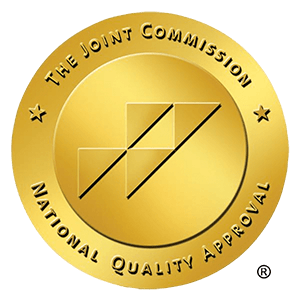Core Recovery’s Teen Co-Occurring Intensive Outpatient Program is our most common teen IOP program track. Human beings are complicated, and adolescence is a particularly complicated time. Teens often struggle with more than one thing at once – including mental health, addiction, and/or eating disorders. The Teen Co-Occurring IOP program recognizes this reality by meeting teens where they are and developing a treatment plan that addresses the overlapping and interconnected challenges they currently face.
Core Recovery’s Co-Occurring IOP provides comprehensive, integrated care, between three and five days per week. The program is designed to occur after school hours, so teens can get the help that they need without disrupting their ordinary school routine.

Core Recovery’s clinical team includes therapists, psychiatric professionals, registered dietitians, and case managers, all of whom work collaboratively to meet the individualized needs of every patient.
From the first day of treatment, the Core Recovery clinical team engages warmly, honestly, and empathetically with every teenage patient and their families to develop a customized treatment plan that is tailored to meeting that patient’s unique clinical needs and personal goals. Individualized treatment plans for Core Recovery’s patients include a combination of group therapy, individual therapy, family therapy, diet and nutrition counseling, and psychiatric / medication management and treatment. Patients who are struggling with an eating disorder (such as anorexia, bulimia, binge eating disorder, avoidant restrictive food intake disorder (ARFID), or orthorexia) also participate in supported meals and ongoing meal-planning.
Core Recovery’s Co-Occurring IOP program uses evidence-based modalities—including cognitive behavioral therapy (CBT), dialectical behavioral therapy (DBT), and eye movement desensitization and reprocessing (EMDR)—to provide patients struggling with one or more mental health issues, addiction issues, and/or eating disorders a healthy and positive therapeutic experience.
FAQs About Core Recovery's Teen Co-Occurring IOP
A: Core Recovery offers programing for those struggling with co-occurring disorders including mental health diagnosis, eating disorders, and substance use.
A: At Core Recovery your treatment program will be customized to meet your individual needs. Once we have completed our evidence-based assessments, determination of level of care and program type will be a collaborative process with your treatment team..
A: The efficacy of outpatient programs—particularly IOPs and PHPs—appear to be as effective as inpatient programs in helping people get and stay sober.
One study found that an outpatient program for alcoholics had a 58% abstinence rate and a 79% improvement rate in patients at a two-year follow-up.
Another study found a 67% abstinence rate for inpatient participants, a 75% abstinence rate for outpatient participants at a 6-month follow-up, a 60% abstinence rate for inpatient participants, and a 68% abstinence rate for outpatient participants at a one-year follow-up.
A review of 12 studies and one review published between 1995 and 2012 found that IOPs and PHPs produced similar reductions in drug and alcohol use and increases in days abstinent compared to inpatient or residential programs.




 In CA By O360®
In CA By O360®